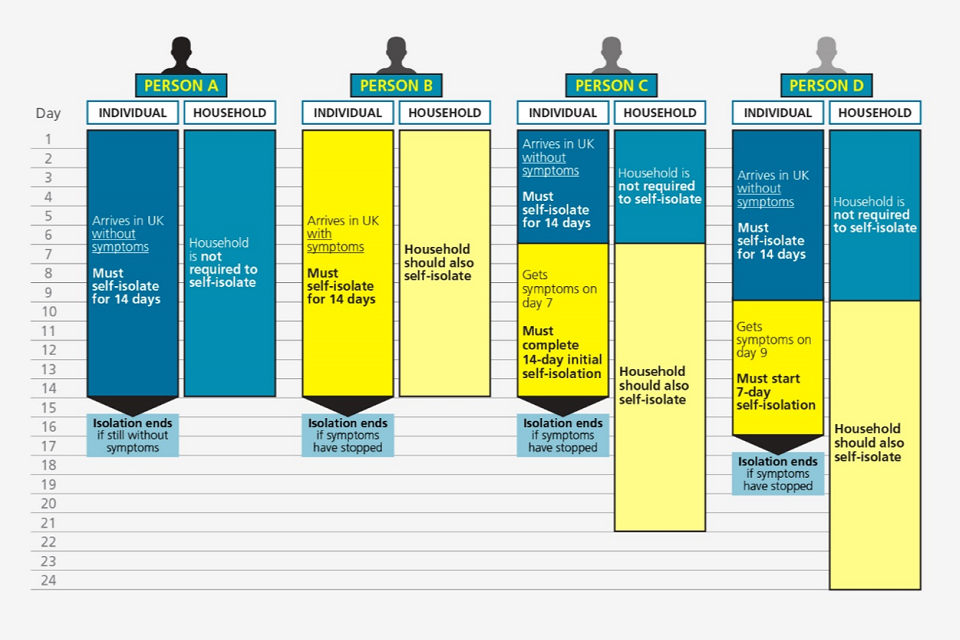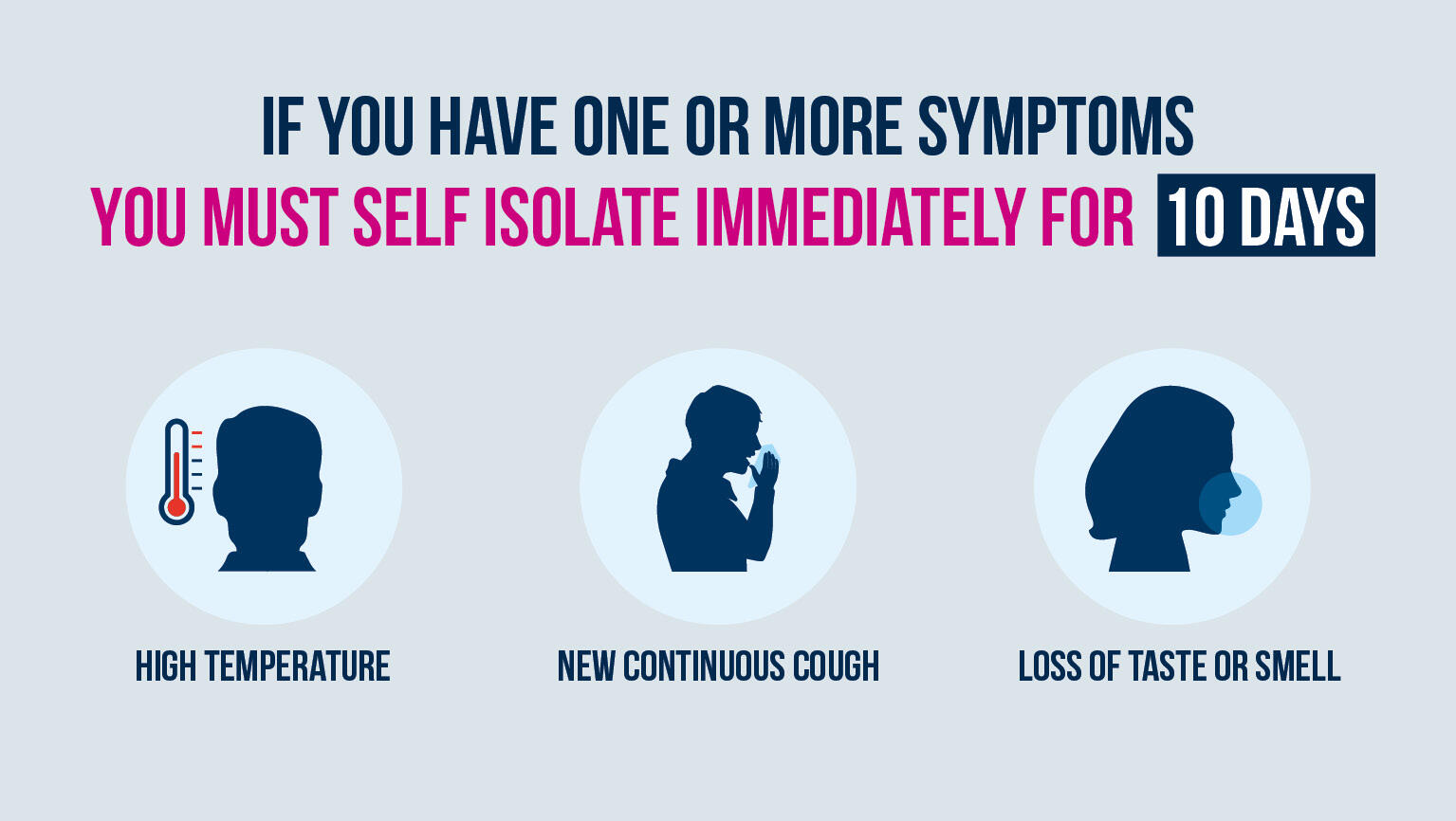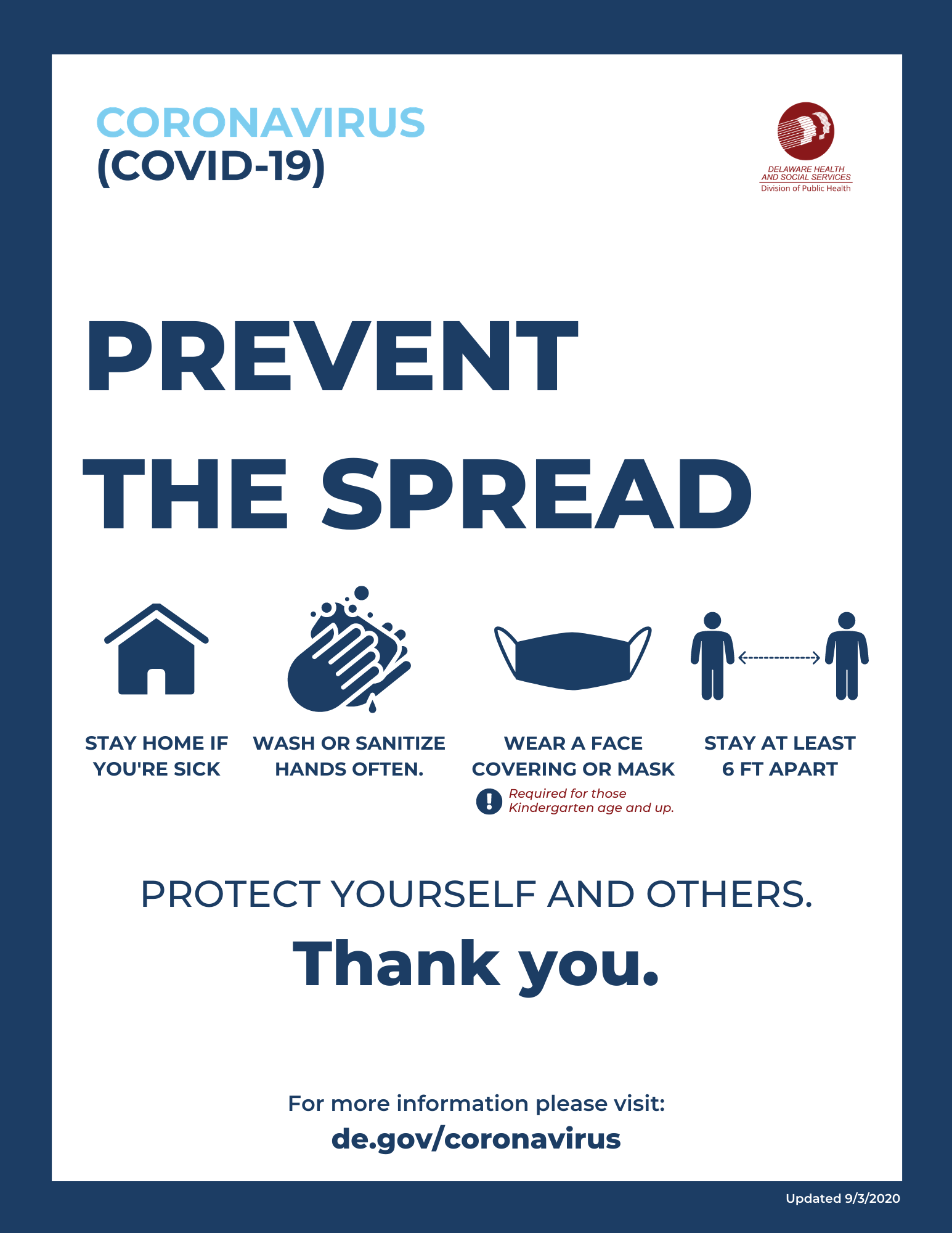Gov.uk symptoms of covid

You should visit your local authority website for information on Test and Trace Support Payments and other practical support offered in your area including help accessing food. If you require prescription medication there is a medicine delivery service available through pharmacies and dispensing GPs. Even if you do not have symptoms, you will be advised to get a PCR test as soon as possible. You can find further guidance for household contacts and guidance for non-household contacts of people with confirmed COVID infections. Take tests if you do not have symptoms to help manage your risk Around 1 in 3 people with COVID do not have gov.uk symptoms of covid symptoms. This means they could be spreading the virus without knowing it. Rapid lateral flow testing continues to be available free of charge.
Navigation menu
It is particularly focused on those who are not fully vaccinated, those in education, and those in higher-risk settings such as the NHS, social care and prisons. People may also wish to use regular rapid lateral flow testing to help manage periods of risk such as after close contact with others in a higher risk environment, or before spending prolonged time with gov.uk symptoms of covid more vulnerable individual. If you want to speak to someone who is not a member of your household, use the phone, email or social media. If you or a family member receive essential care in your home, carers should continue to visit and follow the https://nda.or.ug/wp-content/review/sports-games/yahoo-fantasy-football-change-draft-time-per-pick.php of home care guidance to reduce the risk of infection.

All non-essential in-house services and repairs should be postponed until the self-isolation period is completed. Delivery drivers should not come into your home, so make sure you ask them to leave items outside for collection. Surfaces and belongings can also be contaminated with COVID when people with what to caption a picture of you and your girlfriend infection cough or sneeze or touch them. The risk of spread is greatest when people are close gov.uk symptoms of covid each other, especially in poorly ventilated indoor spaces and when people spend a lot of time together in the same room. Keeping your distance, washing your hands and good respiratory hygiene using and disposing of tissuescleaning surfaces and keeping indoor spaces well ventilated are the most important ways to reduce the spread of COVID People who have COVID can infect others from around 2 days before symptoms start, and for up to 10 days after.
They can pass the infection to others, even if they have mild symptoms or no symptoms at all, which is why they must read more at home.
They could spread the disease to others even when feeling well. How to limit close contact with others in the household if you have COVID Spend as little time as possible in shared spaces such as kitchens, bathrooms and sitting areas. Avoid using shared spaces such as kitchens and other living areas while others are present and take your meals back to your room to eat.
Observe strict social distancing.

Ask the people you live with to help by bringing your meals to your door, helping with cleaning and by giving you space. Gov.uk symptoms of covid a separate bathroom from the rest of the household where possible. If a separate bathroom is not available, try and use the facilities last, before cleaning the bathroom using your usual cleaning products. The bathroom should be cleaned regularly. You should use separate towels from other household members, both for drying yourself after bathing or showering and for drying your hands. Keep your room well-ventilated by opening a window to the outside. Use a face covering or a surgical mask when spending time in shared areas inside your home to minimise the risk of spread to others. Used correctly, they may help to protect others by reducing the transmission of COVID but they do here replace the need to limit your contact with other household members.
Following expert clinical advice and the successful rollout of the COVID vaccine programme, people previously considered to be clinically extremely vulnerable are no longer being advised to shield. Some people are still at higher risk of severe illness if infected with COVID and may have been advised by their health professional to consider taking additional precautions. If someone in the household has been advised to take such precautions, such as maintaining distance from others, they should be supported to do so. It provides scientifically proven advice on reducing the risks from COVID and other viruses in your home.
GermDefence is easy to use and only takes 10 minutes to identify actions and make a plan on how to protect yourself. GermDefence is also available in a range of different languages. Everyone should also take the following steps to reduce the spread of infection within their household. Wash your hands with soap and water for 20 seconds or use hand sanitiser, particularly after coughing, sneezing and blowing your nose and before whats a double shot at starbucks eat or handle food.
Clean your hands frequently and avoid touching your face. Cover coughs and sneezes Cover your mouth and nose with disposable tissues when you cough or sneeze. If you do not have a tissue, cough or sneeze into the crook of your elbow, not into your hand. Dispose of tissues into a rubbish bag and immediately wash your hands. If you have a carer, they should use disposable tissues to wipe away any mucus or phlegm after you have sneezed or coughed and then wash or sanitise their hands. Clean your home to reduce spread of infection Regularly clean frequently touched surfaces, such as door handles and remote controls, and shared gov.uk symptoms of covid such as kitchens and bathrooms.
Use standard household cleaning products like detergents and bleach to clean your home as these are very effective at getting rid of the virus on surfaces. Clean shared bathrooms each time they are used, especially the surfaces you have touched, using your usual bathroom cleaning products. Cleaning cloths gov.uk symptoms of covid personal waste such as used tissues and disposable face coverings should be stored in disposable rubbish bags.
These bags should be placed into another bag, tied securely and put aside for at least 72 hours before being put in your usual external household waste gov.uk symptoms of covid. Other household waste can be disposed of as normal.
What about a cough?
Use a dishwasher to clean and dry your crockery and cutlery. If you have COVID symptoms you should get a test as soon as possible and self-isolate until you get the results. You can get a free NHS test or you can buy a swab test kit from us. More than million vaccinations have been administered across the continent. We do need to see people continuing to make efforts to avoid contact This may make a smaller response to the vaccine and the response may wear off earlier.
But there are also things not in A or B that need to be done, like paying statutory sick pay from day one and also better ventilation in public spaces. How long you need to self-isolate If someone you live with tests positive, your self-isolation period includes the day their symptoms started or the day they had the gov.uk symptoms of covid, if they do not have symptoms and the next 10 full days. When to stop self-isolating You can stop self-isolating after the 10 days if you do not get any symptoms. UK if you get symptoms while you're self-isolating.
Help improve this website
Gov.uk symptoms of covid - that necessary
To view this licence, visit nationalarchives. Where we have identified any third party copyright information you will need to obtain permission from the copyright holders concerned. This guidance is for: people with symptoms that may be caused by COVID, including those who are waiting for a test people who have received a positive COVID test result whether or not they have symptoms people who currently live in the same household as someone with COVID gov.uk symptoms of covid, or with someone who has tested positive for COVID In this guidance a household means: one person living alone a group of people who may or may not be related living at the same https://nda.or.ug/wp-content/review/business/what-restaurants-are-open-this-morning.php and who share cooking facilities, bathrooms or toilets, or living areas.This may include students in gov.uk symptoms of covid schools or halls of residence who share such facilities a group of people who share a nomadic way of life for example those who live on Traveller sites, in vehicles or on canal boats This guidance applies in England.

Symptoms The most important symptoms of COVID are recent onset of any of the following: a new continuous cough a high temperature a loss of, or change in, your normal sense of taste or smell anosmia For most people, COVID will be a mild illness. However, if you have any of the symptoms above, even if your symptoms are mild, stay at home and arrange to have a test. Source other symptoms may have another cause and are not on their own a reason to have a COVID what to caption a picture of you and your girlfriend. If you are concerned about your symptoms, seek medical advice. There may also be other voluntary or community services in your local area that you can access for support. If your assisted LFD test result is positive If your LFD test was an assisted test, and gov.uk symptoms of covid result is positive, you must self-isolate immediately.
For that: Gov.uk symptoms of covid
| WHERE CAN I SEE GROUP CHAT IN MESSENGER | 270 |
| How to look up facebook id number | 993 |
| WHERE IS THE NEAREST MCDONALDS | What is the richest neighborhood in nashville |
| FIND DATING PROFILES BY EMAIL ADDRESS FREE | Is there a storm coming to ireland this week |
![[BKEYWORD-0-3] Gov.uk symptoms of covid](https://coronavirus.delaware.gov/wp-content/uploads/sites/177/2020/09/DSB-COVID-19-Posters-Updated09022020-prevent-spread.png)

What level do Yokais evolve at? - Yo-kai Aradrama Message